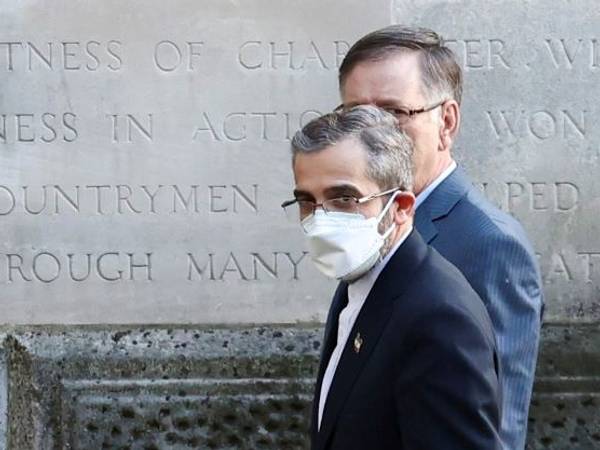Iran succeeded in freeing its blocked funds without the revival of the JCPOA nuclear accord, Tehran’s chief negotiator Ali Bagheri-Kani told the state television.
The United States was insisting all along during nuclear talks that Iran’s funds would be released only after a nuclear deal was reached, Bagheri-Kani said during a television interview Thursday evening. However, “Iran’s diplomacy shaped conditions in such a way that the Americans were forced to retreat from their position and free Iran’s funds outside the framework of a [nuclear] agreement.”
Earlier this month, Iran and the United States announced that $6 billion frozen in South Korea due to US sanction will be released through Qatari mediation, as Iran moved five US hostages from prison into home detention. The Iranians insist that the US citizens will be released only as a prisoner exchange deal, and the release of the funds from South Korea is not related to the hostage deal. However, it is clear that the hostages are being kept in Tehran until the money reaches Iranian bank accounts in Qatar. Currently, the funds are with the Swiss central bank, which is exchanging them into euros gradually and will transfer to Qatar.
Bagheri-Kani confirmed that talks over the hostages were taking place alongside nuclear negotiations in 2021-2022, but the process ended when Russia invaded Ukraine in February 2022 and the delegations left Vienna after almost a year of periodic meetings.
He added that Iran continued pursuing the issue of the blocked funds through intermediaries and the US was resisting. In September 2022, however, “Americans accepted to take steps for releasing the money outside the framework of the nuclear talks, after our persistent follow-ups.”
This coincides with the start of nationwide antiregime protests in Iran immediately after the hijab police fatally wounded Mahsa Amini, a 22-year-old woman in mid-September. Once the protests began, the Biden administrations began voicing support for the Iranian people and their human rights. But if we believe the senior Iranian diplomat, this was the time the US administration agreed to discuss the release of the funds.
In early October, the State Department announced that the US was no longer pursuing the revival of the JCPOA.
“Our focus is not an accord that isn’t moving forward, but what is happening in Iran ... this popular movement and the brutal crackdown of the regime against protesters,” US special envoy Rob Malley said in Paris on October 14.“It’s the sale of armed drones by Iran to Russia ... and the liberation of our hostages…”
Two day later, Malley told CNN that "Right now the talks on revival of JCPOA are not on the US agenda; the focus is on what's happening in Iran as the talks are stalled," adding that “Iran has taken a position in those talks for the past two months, which is simply inconsistent with a return to the deal.” The same message was reiterated several times by Secretary of State Antony Blinken and other top officials.
Iranian protesters and their supporters in the US, Europe and elsewhere took these remarks as indication that the Biden administration had given up dealing with Tehran, while Bagheri-Kani’s remarks indicate behind the scenes talks were taking place for the release of the funds.
Bagheri-Kani said in his interview that the protests in Iran briefly “distracted” the Biden administration, “but they quickly returned to the talks at the end of autumn.”
Critics see the hostage deal as a dangerous step by the US, which will embolden Tehran to detain more Americans given the chance and the money can empower it to undertake anti-West actions.
Moreover, media reports have hinted that the administration has in fact reached a wider, unwritten deal with Tehran, because around $3 billion was also released from Iraq. Supposedly, Iran has agreed to marginally slow down its uranium enrichment in exchange for the funds and a US willingness not to actively enforce existing sanctions.
